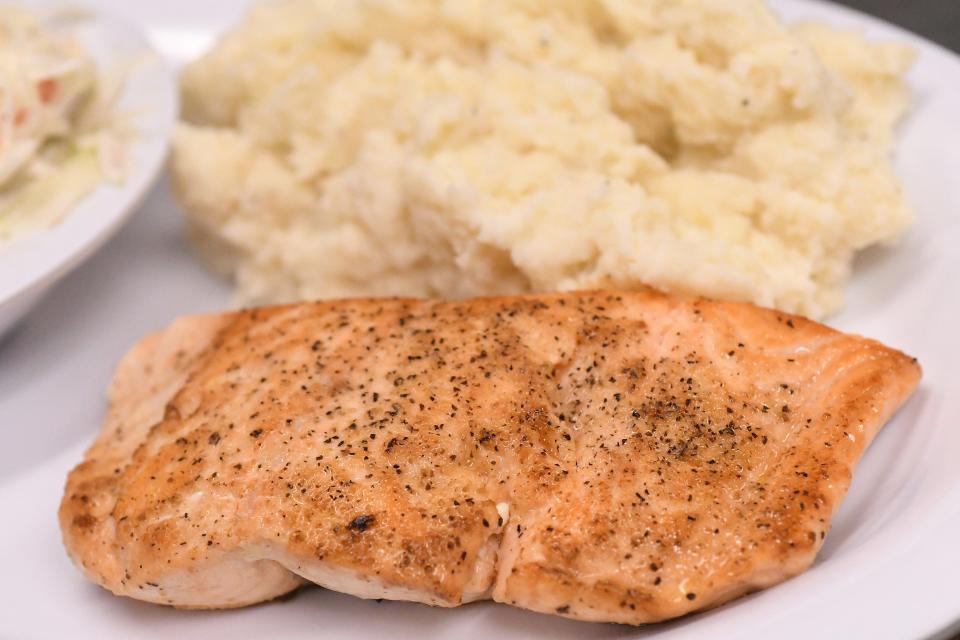From the Extension: Healthy grilling options during the summer
As the temperature rises outside, school gets out for the summer, and the smell of barbeque is in the air. It could be a weeknight dinner or a gathering with friends and family to grill beef, pork, fish, or fruits and vegetables on the weekends. No matter the menu, it's key to keep health in mind when choosing what to grill and recipes to include in your summer barbecues.
More From the Extension: With warm weather here, no better time to start those healthy habits
Exotic cuisine: Give your tastebuds a trip around the world
We can shift our grilling for health to include lean cuts of meat or trim away any visible fat. Lean is defined as 10 grams of fat or less and 4.5 grams of saturated fat or less per serving. When choosing beef, round or loin in the name are lean choices. Strip steak is perfect for grilling, and a top sirloin boneless steak is a great choice to add your favorite rub or glaze.
For poultry, try out recipes that use skinless as that will be lower in saturated fat. Saturated fat is an unhealthy fat that can lead to blockage in your arteries, cause your cholesterol to increase, and affect your blood flow. This makes your heart work harder than it has to.
You can grill a variety of seafood for healthier meals, including salmon, halibut, cod, sea bass, and red snapper. Just make sure pieces are 1 inch or greater to prevent them from losing moisture too quickly and burning.

Vegetables can be grilled in halves, slices, or pieces straight on the grill, on skewers, in a basket, or foil tray. Cook times will depend on the size and shape. Heartier vegetables such as peppers and onions can handle higher heat, while eggplant, squash, zucchini, and mushrooms require less heat, and tomatoes and asparagus require the least.
Vegetables can take 5-10 minutes and should be flipped halfway through cooking. Those cooked in grill baskets will take longer. You can grill fruits such as watermelon, peach halves, pineapple skewers, apples, and plums. Grilling them on high heat will help enhance the sweetness and flavor.
Grilled apples can be chopped and added to a green salad with pecans and blue cheese, or you can add peaches and plums with brie and your favorite greens. Mix up your kebobs with pineapple and chicken or watermelon and shrimp.
A marinade is a seasoned soaking liquid used to add flavor to foods before cooking. Creating your own marinade at home is easy and lets you control the ingredients, limiting extra sugars, salts, and additives. Acidic ingredients like citrus juices or vinegar help soften or tenderize the item before being grilled.
As a guide, use 1/2 cup of marinade for every 1 pound of meat, poultry, or seafood. Be sure you soak the item in the marinade for at least 30 minutes, up to overnight, in the refrigerator in a sealed container.
After removing the food from the marinade, throw out the marinade and do not continue to use it. It can be a source of food-borne illness as a raw protein was soaking in it and is not safe to continue to use.
An Equal Opportunity Institution. UF/IFAS Extension, University of Florida, Institute of Food and Agricultural Sciences, Andra Johnson, Dean and Director. Single copies of UF/IFAS Extension publications (excluding 4-H and youth publications) are free to Florida residents from county UF/IFAS Extension offices.
This article originally appeared on Daily Commercial: Healthy grilling options during the summer

